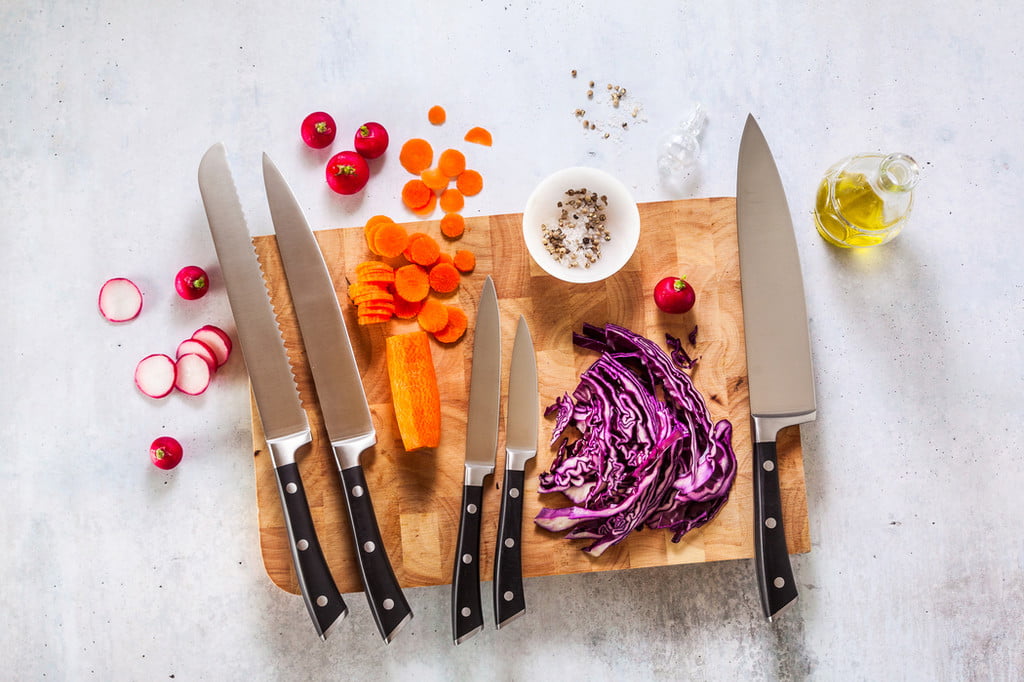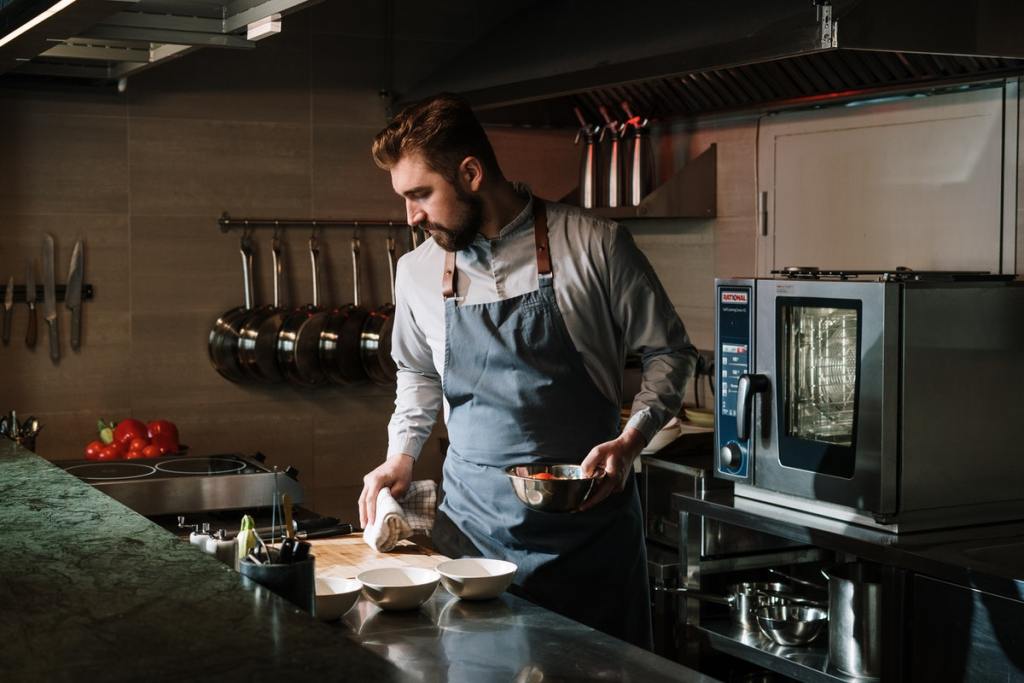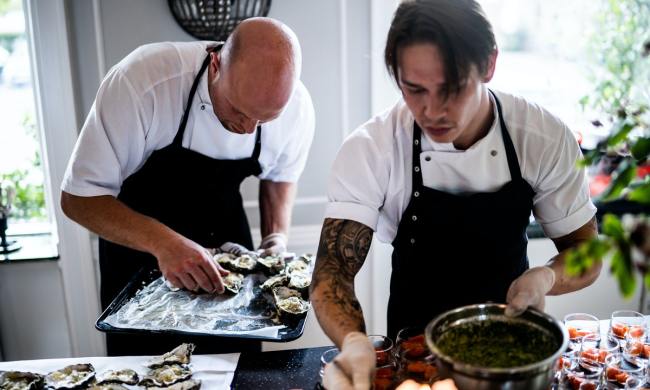Restaurant kitchens are notoriously hierarchical. Their staffing follows a traditional structure dating back to 19th-century France, with defined jobs and reporting lines. The intent of this system is to establish operational efficiency, which is essential during a busy dinner service, but it also preserves a bit of prestige for chefs at the top of the pyramid.
There’s no doubt that restaurant kitchens are fast-paced and depend on a clear understanding of everyone’s roles. There are different types of chefs with different titles. Here’s how these titles stack up in the kitchen, and some explanation of their terminology.
Types of cooks
Managing chefs
A restaurant’s size and complexity determines how many chef and cook ranks populate its staff. A small restaurant might only have one managing chef and two sous-chefs or cooks, for example. But larger restaurants have a group of managing chefs with various job titles. These chefs run the kitchen and are responsible for successfully executing the restaurant’s menu and supervising meal service.
Starting at the top of the organization chart, the chef-owner or group chef has a managing stake in the restaurant and oversees the entire kitchen staff, across shifts. They lead the entire culinary production and give the final say on menu development. There is typically only one chef-owner per restaurant.
Executive chefs come in second. Also known as chef de cuisine or head chef, they manage the kitchen’s daily operations, ordering, food preparation, and menu planning. There is also usually just one chef of this level per restaurant.
Sous chefs or under chefs manage the rest of the team. They are on the front lines, ensuring that the kitchen prepares food to order–correctly and on time. Sous chefs answer to the executive chef, and run the kitchen when the executive chef is absent. Most kitchens have more than one sous chef. They also train new employees.
The final managerial chef is a senior chef or station chef. They specialize in one type of dish or food and manage individual stations, such as desserts or salads. Senior chefs are also responsible for successfully implementing food delivery and making sure supporting team members get the job done, too.

Specialized chefs
Now we move to chefs who excel at a particular craft, whether it’s beautiful pastries and pies, or meats, sauces, and more. Pastry chefs, or patissier, are perhaps the most well-known specialty chefs, particularly because their desserts are often so ornate and visually appealing. They may have a baking degree or additional specialized training, and are usually in charge of the dessert menu. They may also bake fresh bread for the restaurant.
The sauce chef, or saucier, is an in-demand specialty position in French kitchens, mainly because sauces are a crucial component of a tasty French dish and can be very difficult to master. The sauce chef prepares sauces and gravies and may also make or supervise the daily soup.
There are a variety of other specialty chefs who each manage their own terrain in larger kitchens. Each restaurant varies in its lineup of specialty chefs, depending on the cuisine and restaurant size and budget.

Cooks
No matter how well-trained and prestigious a kitchen’s chefs, a good restaurant would not survive with a solid cadre of skilled cooks. Restaurant cooks occupy entry-level positions and follow menus and recipes set by the managing chefs. They report to specialized chefs or sous chefs, and do prep work as well as actual dish preparation.
First, line cooks or commis are multitaskers and may plate dishes, prepare for a meal service, or play a single role in an assembly line, such as sauteeing vegetables. Their roles depend on on the requirements of their supervisors and the needs of the kitchen.
Prep cooks or kitchen porters are next in line. Their primary roles are to prep foods for cooking, such as chopping vegetables and herbs and marinating meat. They also clean the kitchen during every shift and make sure food is stored and labeled properly.
Relief cooks fill in as needed and assist chefs at their stations, and then finally, short-order cooks prepare simpler meals such as those found at a diner or chain restaurant. These meals might have frozen ingredients or only require a few steps to complete.
For well more than a century, French kitchen terminology has been synonymous with job titles in restaurant kitchens. The chef system conveys both a structure and chain of command that delivers delicious food to customers.



